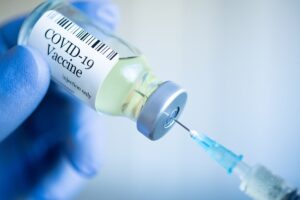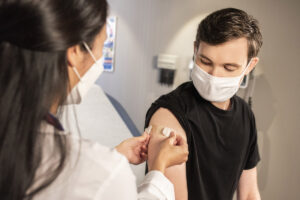What Patients Need to Know About Vaccines
Protection from childhood vaccines can wear off over time. With age, adults need immunizations too, not just children. According to the CDC, below are what vaccines you need depending on your age, gender, health condition, and some other circumstances.
Vaccines for Young Adults Age 19 to 26 Years
Young Adults ages 19-26: The CDC recommends young adults have the seasonal flu vaccine every year, as well as your Td or Tdap vaccine (Tetanus, diphtheria, and pertussis). You also need the HPV vaccine (protects against of human papillomaviruses that causes cervical, anal, and other cancers). There may be other vaccine shots that you need for your employer or school requirements. For example, this coming Fall, it is required in many universities to have the COVID-19 vaccine in order to live on campus and attend classes.
Vaccines for Adults Age 50 Years and Older
- You need to receive the shingles vaccine, which protects against shingles and the complications that come with it. 1 in 3 Americans over 60 years old develop the shingles in their lifetime.
- You also need the PPSV23 shot (Pneumococcal polysaccharide vaccine), which protects against diseases like meningitis and bloodstream infections.
- You need the PCV13 shot (Pneumococcal conjugate vaccine), which protects you against pneumococcal disease and pneumonia. Pneumonia becomes more dangerous as you age, so it is imperative that you receive this vaccine.
Adults with Underlining Health Conditions
- Adults with health conditions
- All adults need the flu shot
- Talk to your doctor about which vaccine shots you should take depending on what health conditions you have.
- Pregnant Women
- If you are pregnant, you need two vaccines during each pregnancy:
- Tdap vaccine to help protect against the whooping cough
- Flu shot to help protect against influenzas
- You may need more vaccines. Talk to your doctor about a specific plan for you and your pregnancy.
Healthcare Workers
- Flu shot
- Hepatitis B: if you don’t have evidence of a completed hepB vaccine series, or you don’t have an up-to-date blood test that shows that you are immune to hepatitis B, then you need to get the 3-dose series. Talk to your doctor and go over what you need.
- MMR: If you were born in 1957 or later and you haven’t received the MMR vaccine, you need 2 doses to protect yourself from the Measles, Mumps, and Rubella.
- Varicella: This is the chickenpox vaccine, which is required for all healthcare workers
- Meningococcal: One dose.
International Travelers
Up-to-date with all recommended vaccinations. Find out which vaccines you need based on the “Vaccine Self-Assessment Tool” on the CDC website.
Immigrants and Refugees
- Refugees and immigrants need to get all vaccines recommended by the Advisory Committee on Immunization Practices (ACIP).





